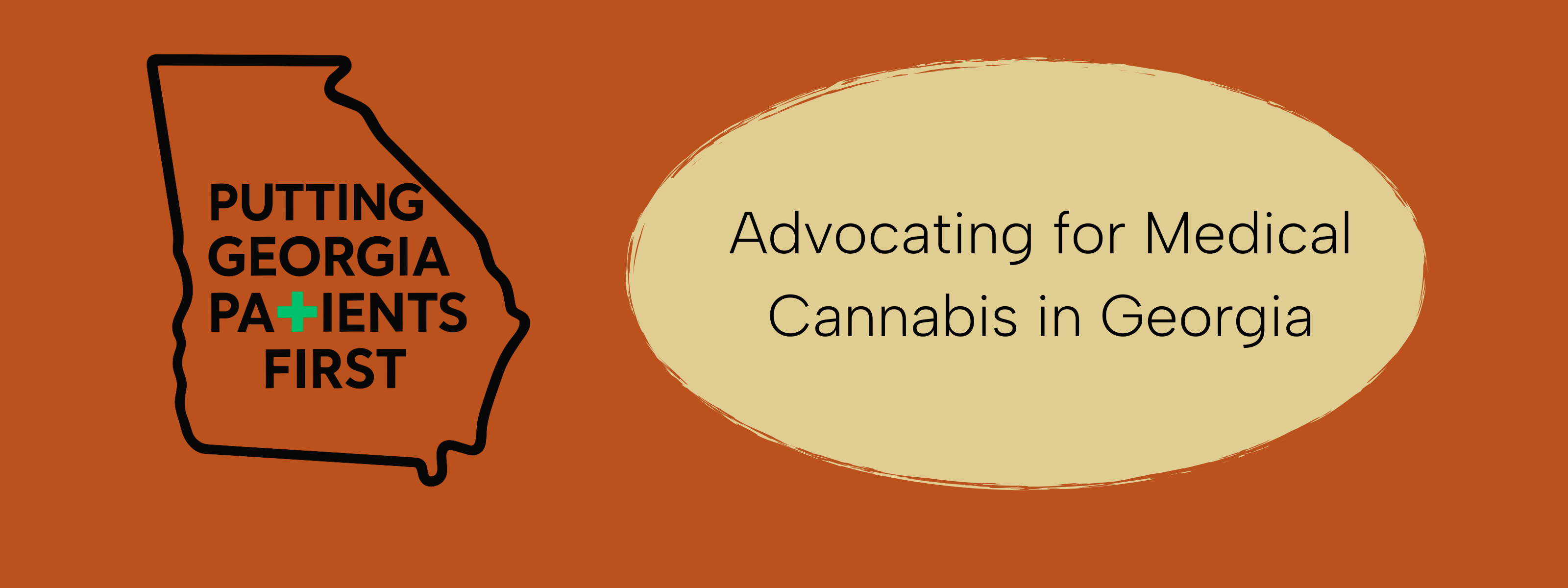The 2025 General Assembly may have stalled the Putting Patients First Act, but the fight for access is far from over. In response, a statewide study committee has been formed to hold public hearings and investigate how Georgia’s current medical cannabis laws are falling short. This is a critical opportunity for patients and advocates to be heard — and to help shape the future of care in our state.
The legislature will then take up the legislation again in 2026.
Putting Georgia Patients First will reclassify medical cannabis to expand access, remove outdated restrictions, and prioritize patients' needs over politics. Now is the time to ensure full implementation, public awareness, and continued support for those who rely on this life-changing medicine.
Georgia Veterans Advocating for Wider Access to Medical Cannabis
Gary Herber, a Purple Heart recipient and U.S. Army veteran, says medical cannabis has helped him manage PTSD—but warns the current system leaves too many veterans behind.
"For those of us who just know that fight every single day, a program like this and medicines like this can make that fight a little easier."
Herber is working with the coalition and Georgia physicians to push for expanded access so that more veterans, not just those who qualify, can get relief.
"Look into these programs… It’s made a huge difference in my life."
Largest-Ever Study finds Medical Cannabis Holds Great Potential in the Fight Against Cancer.
The largest ever study investigating medical cannabis as a treatment, published in April 2025 in Frontiers in Oncology, found overwhelming scientific support for cannabis’s potential to treat cancer symptoms and potentially fight the course of the disease itself. In Frontiers in Oncology, there is overwhelming scientific support for cannabis’s potential to treat cancer symptoms and potentially fight the course of the disease itself.
Cancer Playbook funded the study, which collaborates with the Whole House Oncology Institute to collect, analyze, and share data on patient-reported outcomes.
The study looked at more than 10,000 studies on cannabis and cancer, which, he said, is 100 times the sample size of the next largest study. Many believe this helps make it a more conclusive review of the scientific consensus.
The study overwhelmingly supported cannabis as a treatment for cancer-related inflammation, appetite loss, and nausea. It also showed that cannabis has the potential to fight cancer cells themselves, by killing them and stopping their spread.
The analysis Further revealed a significant consensus supporting the use of medical cannabis in the categories of health metrics, cancer treatments, and cancer dynamics. The aggregated correlation strength of cannabis across all cancer topics indicates that support for medical cannabis is 31.38× stronger than opposition to it. The analysis highlighted the anti-inflammatory potential of cannabis and its use in managing cancer-related symptoms such as pain, nausea, and appetite loss. It explored the consensus on its use as an anticarcinogenic agent.
The conclusion from the study: “The consistency of positive sentiments across a wide range of studies suggests that cannabis should be re-evaluated within the medical community as a treatment option. The findings have implications for public health research, clinical practice, and discussions surrounding the legal status of medical cannabis. These results suggest a need for further research to explore the full therapeutic potential of cannabis and address knowledge gaps.”
Decade after Georgia lawmakers legalized low-THC medical cannabis, Legislature weighs broader access
Ten years after Georgia legalized cannabis possession for medical use, lawmakers in both chambers of the state Legislature seem poised to expand access a bit more.
Georgia lawmakers had long resisted decriminalizing possession of the drug because of its stigmatizing medical marijuana nickname, even as a parade of parents annually brought their children to the state Capitol as evidence of the need for the medicine that offered a promise of relief to little ones suffering from epileptic seizures and other maladies.
Attempts to widen the path to accessing medical cannabis have stalled in recent years, but as the pivotal Crossover Day deadline looms on March 6, at least one bill has made it halfway through the Legislature.
Tetrahydrocannabinol, generally abbreviated to “THC,” is the psychoactive compound in marijuana that is currently classified as a Schedule I drug at the federal level and banned in Georgia. However, THC’s non-psychoactive counterpart cannabidiol, also known as CBD, has been shown to be effective in treating health conditions including epilepsy, Crohn’s disease and post-traumatic stress disorder.
